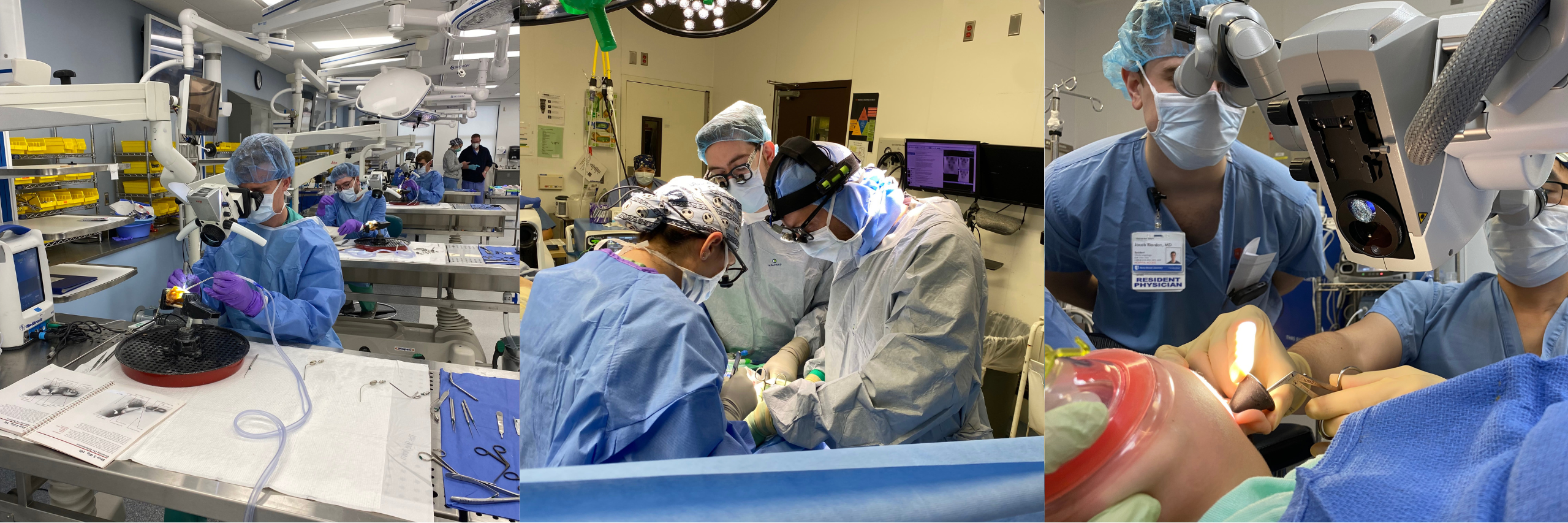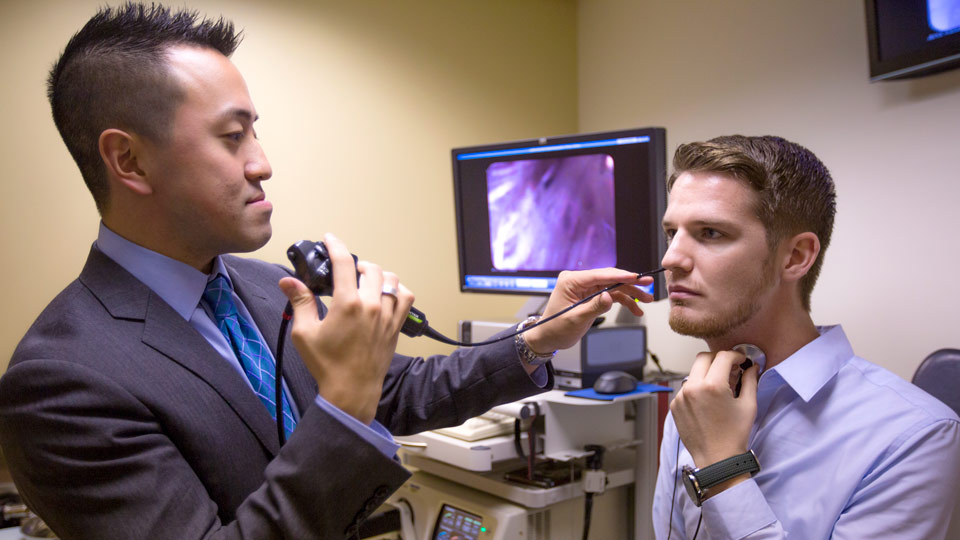Exploring the Area of Otolaryngology: What to Anticipate When You Seek Advice From an ENT
Otolaryngology, frequently referred to as ENT, includes the diagnosis and treatment of throat, ear, and nose disorders. For those experiencing relevant problems, seeking advice from an ENT professional can give quality and alleviation. Comprehending what to anticipate throughout such assessments is vital for reliable interaction and treatment. This introduction will certainly describe crucial facets of the ENT experience, consisting of common reasons for visits and the procedures included in diagnosis and therapy.

Comprehending Otolaryngology: A Summary
Otolaryngology, typically described as ENT (Nose, ear, and throat) medication, is a customized branch of medication that concentrates on the diagnosis and treatment of conditions affecting these essential areas of the body. This area includes a large range of problems, consisting of those relevant to hearing, balance, breathing function, and speech. Otolaryngologists are trained to take care of both clinical and surgical therapies, making use of sophisticated strategies and modern technologies. Their proficiency extends beyond traditional conditions, dealing with issues such as allergies, sinus infections, and hearing loss. In addition, they play a crucial function in the administration of head and neck cancers, supplying comprehensive treatment customized to individual person requirements. Overall, otolaryngology continues to be crucial for keeping wellness and lifestyle in affected individuals.
Common Factors to See an ENT Expert
Lots of individuals seek the knowledge of an ENT specialist for a range of reasons, reflecting the varied nature of conditions that impact the ear, throat, and nose. Typical concerns consist of chronic sinusitis, which frequently results in relentless nasal blockage and face pain. Allergic reactions and their associated signs, such as itching and sneezing, additionally prompt visits to these professionals (Hearing). Hearing loss, whether unexpected or steady, is one more significant reason for assessment. On top of that, people may seek analysis for throat problems, including consistent hoarseness or ingesting difficulties. Rest apnea, defined by disturbed breathing during rest, is frequently resolved by ENT professionals as well. Each of these conditions highlights the value of specialized treatment in handling complicated ENT-related health and wellness concerns
Getting ready for Your ENT Visit
When getting ready for an ENT consultation, it is vital to collect pertinent information and think about any type of particular issues. Individuals ought to compile a comprehensive medical background, consisting of previous ear, nose, or throat issues, surgical procedures, and current medicines. Documenting symptoms-- such as frequency, severity, and duration-- can provide important insights for the ENT expert. Furthermore, people need to prepare a list of inquiries they desire to ask, making certain that all worries are attended to during the see. Bringing along any type of appropriate clinical records or examination outcomes can further aid the ENT in understanding the person's condition. Clients ought to validate their appointment information, including time, date, and area, to lessen any last-minute complication. Proper preparation can improve the performance of the assessment and bring about much better outcomes.
What to Anticipate During the Assessment
As the assessment starts, the person can expect to involve in a detailed conversation with the ENT expert regarding their symptoms and clinical background. The specialist will inquire regarding the duration, frequency, and severity of symptoms such as hearing loss, nasal congestion, or sore throat. Furthermore, the individual's previous clinical conditions, medications, and any kind of appropriate family members background will certainly be evaluated, assisting the expert in creating a complete understanding of the client's health. The ENT might also ask regarding lifestyle factors, such as exposure to irritants or irritants. This open dialogue develops a foundation for the consultation, making sure that the individual's problems are dealt with and setting the phase for any kind of needed examinations or suggestions for therapy.
Analysis Tests and Procedures in Otolaryngology
A series of diagnostic tests and treatments are important in otolaryngology to precisely assess and diagnose problems affecting the nose, ear, and throat. Usual tests include audiometry, which measures hearing function, and tympanometry, evaluating middle ear stress. Nasal endoscopy permits visualization of the nasal passages and sinuses, while laryngoscopy takes a look at the throat and singing cords. Imaging methods, such as CT scans and MRIs, offer in-depth sights of head and neck frameworks. Allergic reaction screening might also be performed to determine triggers for sinus or breathing concerns. These diagnostic tools make it possible for ENT professionals to create a complete understanding of people' problems, ensuring tailored and reliable management plans. Proper diagnosis is necessary for successful therapy results in otolaryngology.
Treatment Alternatives Used by ENT Specialists
ENT experts use a variety of treatment choices tailored to resolve certain conditions impacting the nose, throat, and ear. These therapies vary from traditional strategies, such as medicine and way of boies fundamentals of otolaryngology living alterations, to even more intrusive treatments. Allergic reactions might be handled with antihistamines or immunotherapy, while chronic sinus problems may need nasal corticosteroids or sinus surgical procedure. For hearing loss, ENT experts often advise listening device or surgical interventions like cochlear implants. In situations of throat disorders, options can consist of speech therapy or surgeries to get rid of blockages. Additionally, they might give advice for taking care of sleep apnea, including making use of CPAP tools or medical interventions. In general, the objective is to enhance people' top quality of life via individualized care and efficient treatment methods.
When to Seek Follow-Up Treatment With an ENT
When to look for follow-up care with an ENT specialist read this post here is important for handling recurring signs and symptoms or problems associated to ear, nose, and throat problems, recognizing. Patients need to consider scheduling a follow-up appointment if signs persist in spite of first treatment, such as persistent ear pain, nasal blockage, or throat discomfort. Modifications in hearing, balance issues, or unusual nasal discharge may additionally necessitate additional evaluation. Furthermore, if a patient experiences side impacts from recommended medicines or has undertaken a procedure, follow-up care is important to monitor healing and resolve any type of concerns. Timely consultations can ensure reliable monitoring of conditions, prevent possible problems, and offer assurance relating to one's health and wellness. Seeking follow-up treatment promotes aggressive wellness administration in otolaryngology.
Regularly Asked Concerns

What Certifications Should I Search for in an ENT Expert?
When looking for an ENT expert, one need to seek board certification, relevant experience, and solid patient testimonials. Additionally, effective interaction abilities and a caring approach can considerably average hearing loss by age boost the general treatment experience.
Exactly how Do I Choose the Right ENT for My Demands?
Choosing the best ENT expert includes reviewing their credentials, experience, and individual reviews (Voice). It is important to ponder their communication design and method to treatment, guaranteeing they align with the person's details health and wellness needs and choices
Are There Any Threats Related To ENT Procedures?
The dangers connected with ENT treatments may include infection, bleeding, anesthetic complications, and potential damages to surrounding frameworks. Patients need to talk about these dangers with their doctor to understand private issues and assurance educated choices.
Just How Can I Take Care Of Anxiety Prior To My ENT Consultation?
To manage stress and anxiety prior to an appointment, individuals can practice deep breathing workouts, envision positive results, prepare concerns ahead of time, and look for support from friends or household, fostering a sense of confidence and calmness.
What Should I Do if I Experience Side Results From Therapy?
If adverse effects from therapy happen, the person should quickly report them to their health care provider. Changes to therapy or extra interventions might be needed to guarantee security and effectiveness in managing their problem - ENT. As the examination begins, the patient can anticipate to involve in a comprehensive conversation with the ENT professional concerning their symptoms and clinical history. These analysis tools enable ENT experts to develop a detailed understanding of individuals' problems, ensuring tailored and reliable monitoring strategies. ENT experts provide a variety of treatment alternatives customized to resolve certain conditions influencing the nose, ear, and throat. When looking for an ENT professional, one ought to look for board accreditation, relevant experience, and strong person testimonials. Picking the ideal ENT professional includes evaluating their credentials, experience, and patient reviews